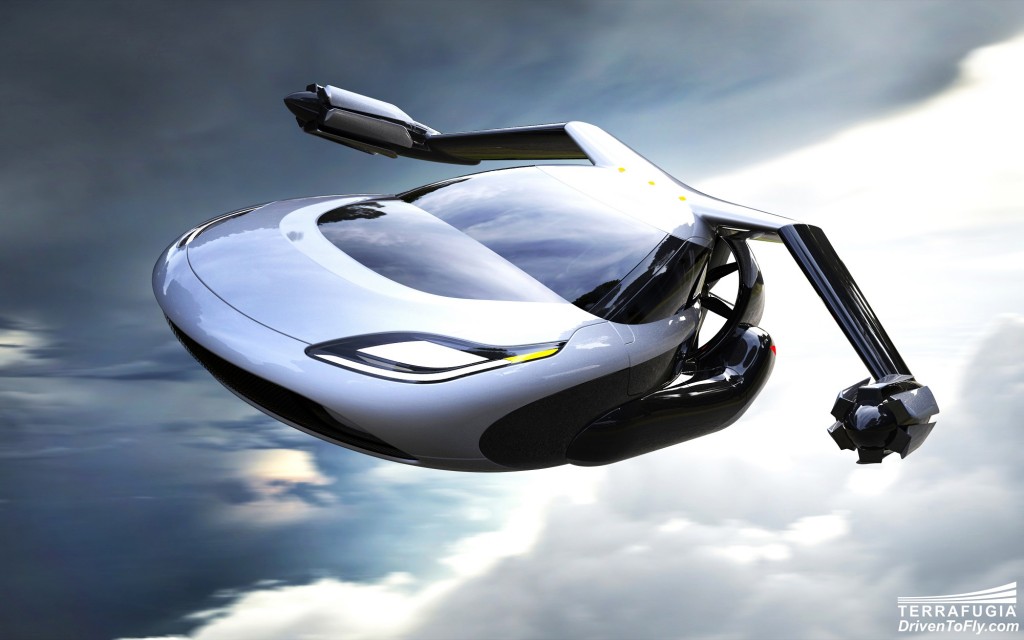America's Terrafugia has provided a few new details on its Transition flying car slated to enter production in 2019.
Terrafugia was formed in 2006 by a group of engineers at MIT and was acquired late last year by China's Geely, the parent company of automakers Volvo and Lotus.
Terrafugia's goal is to develop a vehicle able to meet the requirements for the FAA’s Light Sport Aircraft classification and double as a practical road car. (A pilot’s license for Light Sport Aircraft is relatively simple and inexpensive to obtain, as it requires only 20 hours of logged flight time.)
That vehicle is the Transition, which features a two-seat cabin and a foldable wing. The latter will allow the Transition to fit easily in a standard car lane, and unfolding the wings can be achieved in under a minute. Established aerospace firms Dynon and BRS are providing the avionics and safety parachute, respectively.

Terrafugia TF-X
Power will come from a hybrid setup combining a small internal combustion engine with an electric motor, with the latter drawing its energy from a lithium-iron phosphate battery. Terrafugia says such a battery was picked over more common lithium-ion designs for safety reasons. In the air, the Transition will feature a boost function capable of providing a brief burst of extra power when needed.
The Transition is promised to deliver a 400-mile flying range and a top flight speed of 100 mph. While it still requires a runway for takeoff and landing, Terrafugia has a more advanced design known as the Transition TF-X that promises vertical takeoff and landing and even better performance.
Terrafugia is accepting $10,000 reservations for the Transition. The company has pushed back its deadlines on a number of occasions though at present is promising the Transition for delivery in 2019 and with a starting price of $279,000.
As cities become more congested, more and more companies are entering the race to develop safe, reliable and relatively affordable flying cars. Geely isn’t even the first automaker to be associated with flying cars. Toyota already has a skunk works team working on the concept and Daimler has invested in a flying taxi startup.
